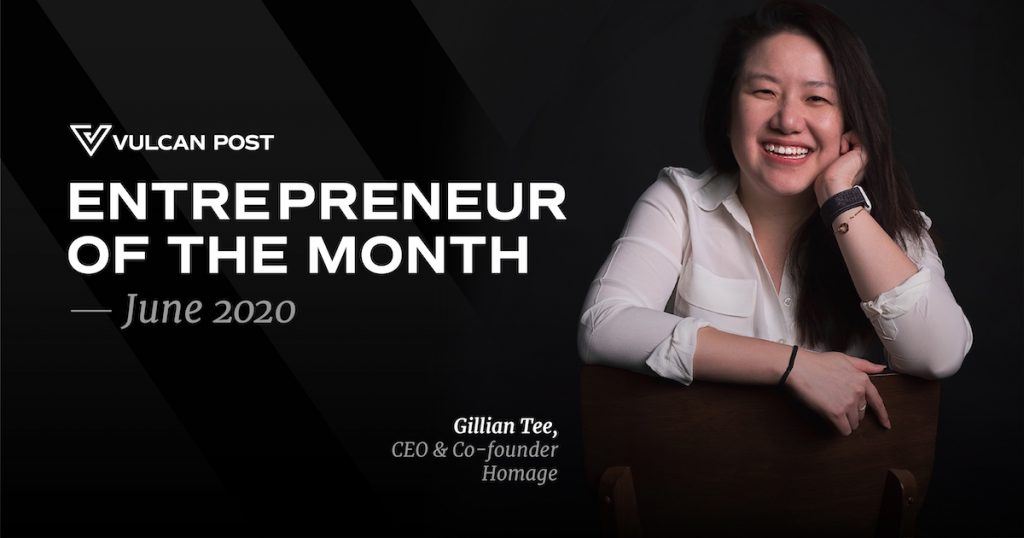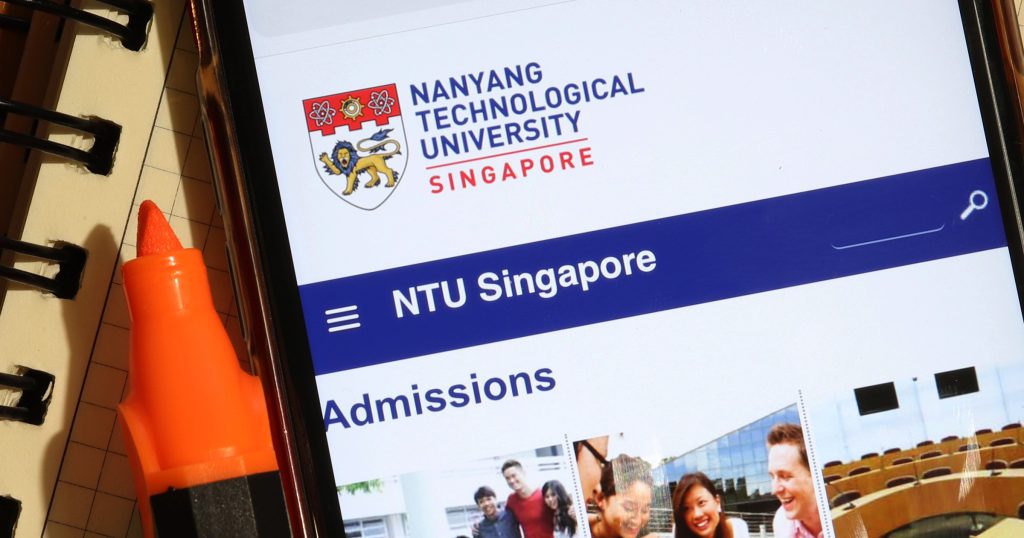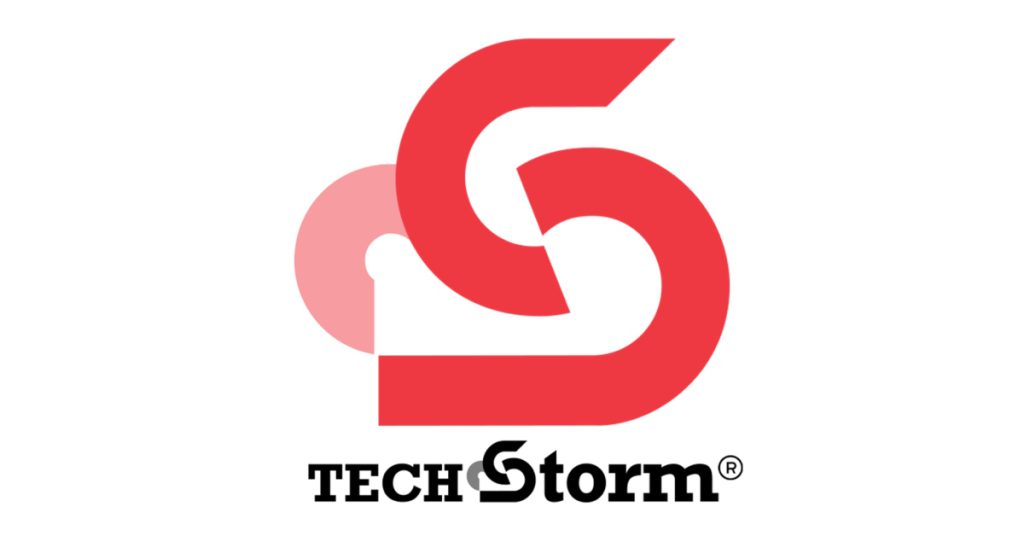This interview wasn’t the first time I met Gillian Tee, co-founder and CEO of Homage.
Back in 2017, I attended a DBS ‘Digital Disruption for Impact’ event where Gillian, along with other social enterprise founders, talked about how technology and innovation have empowered them to scale their businesses.
Homage was a fresh recipient of DBS’ Social Enterprise Grant, which acted as its ‘launchpad’, giving the startup support in terms of business opportunities and capacity building.
In that same year, Prime Minister Lee Hsien Loong also lauded Homage for tapping on technology to match a pool of caregivers to ageing seniors in his 2017 National Day Rally speech.
Despite being a fledgling startup, the fact that Homage was mentioned in the speech was an absolute honour, said Gillian. They were being recognised, and it was like PM Lee gave them his “stamp” of approval.
Looking back on these milestones, an obvious running theme here is technology. For Gillian, she herself has been coined as a ‘Silicon Valley techie’ who returned to Singapore to set up an eldercare startup.
The homecoming queen’s hunger for success has taken her around the world and back to serve the silver generation, and it’s not an understatement to say that she has helped revolutionise the eldercare industry in Southeast Asia.
Homage: A Tribute To Her Late Nanny

Growing up, Gillian admitted that she led a pampered and sheltered life.
“I was very fortunate — I have no complaints, and I definitely have a lot to be grateful for,” she said.
She didn’t want to deep-dive much about her family background due to “sensitive reasons”, but revealed that she was very close to her grandmother and elderly nanny growing up.
Her nanny unfortunately passed away from bone and breast cancer when Gillian was 12, which left a deep wound in her heart.
I think I have a huge sensitivity to the elderly because I spent so much time with them then. Back in school, I often had excursions to the nursing home but I felt like I couldn’t spend a prolonged period of time [there after her passing]. I couldn’t go into a nursing home without crying, although these nursing homes are now excellent work partners.
– Gillian Tee, co-founder and CEO of Homage
‘How else was school life like for you? Would you call yourself a good student?’ I probed.
Gillian may have hailed from the top schools in Singapore — Singapore Chinese Girls’ School and Raffles Junior College — but she bluntly confessed that she “barely made it” in those schools because she wasn’t very focused on her studies.
After graduation, she packed her bags to Australia. She ended up in RMIT University for three months before moving over to University of Melbourne.
When asked why she pursued a degree in Computer Science, she said that it was a “very rudimentary stupid reason.” She figured that since she was good at maths, she could do well in computer science — which was also a subject that her mother (who was a teacher) taught.
Above all, she had a “gut instinct” that “technology and computing [would be] on the uprise.” She added that she wanted to “take care of the hard stuff first” before pursuing other interests like business and writing.
Her First Foray In Tech
After completing her degree in 2004, she stayed on at the university as an artificial intelligence researcher for nine months.
She later took on roles as a software engineer and technology consultant at Accenture. Three years later, she made the life-changing decision to ask for a transfer to New York because she wanted to start living life on her own terms.

“I transferred from Temasek Junior College to Raffles Junior College because my friends were there. I went to University of Melbourne because my sister lives there. All throughout my life I never knew what I wanted,” she said, with a hint of exasperation in her voice.
“My experience in the US was so crucial and fundamental because it allowed me to grow backbone. I figured out what I wanted to do, achieve and learn. It was like shedding my skin — I felt very pampered, first-world, and going through tough times on my own was key.”
Tough times indeed. Gillian had a hard time adapting to the competitive working culture there, and was “put on the bench” shortly after because she couldn’t clinch projects on her own.
Her performance grade dropped and when the firm was laying off workers, they “sliced off the bottom-tier” and she lost her job.
‘So were you fired because of poor performance, or the financial crisis?’ I asked.
“A bit of both, honestly.”
“One of the feedbacks I got was that I needed to speak up and offer more contributions and inputs in meetings — because that’s what consultants do, we talk!”
“I had this problem where by the time I had formulated what I wanted to say, the conversation has moved on already. Oh boy, I really struggled. Yeah, it was tough,” she said as she shook her head.
When she was put on the bench for three months, she used the downtime to attend a training programme to polish up on her presentation skills. What’s upsetting however, is that even her trainer told her in the face that she sucked.
Every single feedback I got was all around my (lack of) communication skills. And this is the stereotype for Asian girls too: you’re meek, you’re not outspoken, you don’t have a point of view, you don’t have a voice.
So that’s an issue. In the professional world, if you have no voice, you have no leadership. With no leadership skills, how are you going to be hired or progress [within the company]? So I knew if I wanted to do well in the US, I have to work on this.
– Gillian Tee, co-founder and CEO of Homage
That was why she enrolled herself in Columbia Journalism School. She “wrote a bunch of essays,” which helped improve her communication skills, but it was also a huge transition because she had spent the last four years coding.
Her studies didn’t end there. She went on to pursue a Master of Business Administration (MBA) from Columbia Business School as well as a master’s in international affairs from Columbia University.
Rocketrip Takes Off
While doing her MBA, Gillian interned for a year at venture capital firm NYC Seed, where she learned firsthand how investors look at businesses.
That was in 2011. During that year, she also tried her hand at building her own business — “like Pinterest, but for Craigslist” — which didn’t quite take off.
After completing her MBA, she worked for another fund which invested in technology. The fund director introduced her to Dan Ruch, who later became her business partner.

Gillian and Dan co-founded Rocketrip in 2012, a startup that helps companies reduce travel spending by sharing the savings with their employees.
The company, backed by the likes of Y Combinator and Google Ventures, rapidly grew. To date, Rocketrip has raised more than US$30 million in funding.
While Gillian is no longer operationally involved in the business, she still co-owns the company. According to her, Rocketrip has taught her many business lessons:
Firstly, I learnt how to get the culture right. Truth is, you’ll fail a lot — even if you are building a growing business, you can’t get everything right. So you got to be okay with imperfection; done is better than perfect.
Secondly, I learnt how to build a strong team. Scaling internally is just as important as scaling externally. You should not just focus on scaling your business in the market, but also spend time to invest in your team. Finding the right people, as well as coaching and mentorship, actually [play] a big part.
– Gillian Tee, co-founder and CEO of Homage
Post-Rocketrip, Gillian launched an online coding school called Code Upstart, which helped kids learn how to code. She described it as a “side hustle”, adding that she has since shut it down to focus on Homage.
“I tried to find someone to head it but I just couldn’t find the right person, so I made the call to shut it off,” she said.
Tech-ing Care Of The Silver Generation
After spending close to 15 years abroad, Gillian finally decided to come home to Singapore.
She cited two reasons for the move back: she wanted to spend more time with her ageing mother, and also set up a business here.
But why eldercare?
“I had five family members and friends who were dealing with chronic illnesses,” she said, choking up on her words. Her throat visibly tightened up as she reached towards the glass for a sip of water.
“I just felt like it was a real problem to solve. It really connected because of my experience with the elderly when I was young, so yeah, it was a perfect storm — everything came together at the the same time. It made sense for me to work on a solution that could bring higher accessibility [to eldercare services].”
On how Homage came about, a couple of angel investors Gillian met introduced her to former banker Tong Duong and former healthcare executive Lily Phang.
The trio co-founded Homage in 2016, a startup that uses technology to provide on-demand home caregiving by connecting healthcare professionals to seniors.
They started off small — their team only had about five members (including the three co-founders), so each one had to juggle multiple hats.
“I was a care advisor, taking calls and getting customers. I was also the coder; I built the first version of the app. I also solved operational problems, formed B2B partnerships and also helped fundraised and looked for investors,” she said, as she counted off with her fingers.
As a founder, she had no choice but to take on multiple roles to drive the business forward. Despite the challenges, Gillian felt that the hustle of the early startup days was fun.
Homage first secured angel investments of about $300,000 to $400,000. In 2017, it secured a seed investment of US$1.2 million.
In 2018, Homage raised US$4.15 million in a Series A round and earlier this year, it raised “double-digit millions” in a Series B round.
When it comes to fundraising, many people often view eldercare as an ‘unsexy’ business, so has it ever been difficult to pitch Homage to investors?
I wouldn’t say it’s difficult. Generally, investors look for strong fundamentals of the business. So I think if you can hit those ‘key checkpoints’, you’re good.
One fundamental is market size. For eldercare, the market size is huge and Singapore alone is an ageing population. You have to be able to prove your proposition and of course, talk about the competitive landscape. Investors for early-stage [startups] also look at the founding team. These fundamentals never go away [regardless of the] industry.
– Gillian Tee, co-founder and CEO of Homage
“In fact, you could also argue that because it’s a non-sexy industry, the competition is lower. It’s niche, but has a higher market size — that actually makes it even more attractive for [certain] investors,” she added.
COVID-19: Finding Opportunity In A Crisis
Since its founding, Homage has expanded rapidly. It has grown its B2B business more than 400 per cent in 2019, and six-fold for its Malaysia operations since the beginning of the year.
Homage has also established the largest fully-screened pool of close to 2,000 qualified care professionals in Southeast Asia.

In its next phase of growth, Homage is looking at expanding further in the region. It plans to launch in five countries within the next two years, though Gillian refused to disclose where they are eyeing.
However, she hinted that whichever country they launch in next, it will have a high adoption of technology, among other considerations.
According to Homage, the number of elderlies will exceed the number of children globally by 2050. In particular, Asia’s dramatically ageing population will place an unprecedented demand for care and health services.
Homage plans to be the solution to fill the gap of health worker shortages employing technology to deliver quality personalised care services.
While some businesses may be struggling due to COVID-19, the pandemic has fortunately brought about opportunities for Homage.
It recently launched a new service arm called Homage Health, which offers home medical services such as mobile medicine, telehealth consultation and medicine delivery.
Building on top of Homage Care, which includes Homage’s core nursing, caregiving and rehabilitation services, the healthcare company saw a spike in enquiries on medical teleconsultations and home medical services as families increasingly look for options to minimise infection risk during the pandemic.
Gillian said that this service has been in the works even before COVID-19, but its launch was accelerated due to the increasing demand.
One of the biggest realisations is that not all healthcare needs can be met digitally. Going digital is great because it reduces cost and travel time, and it’s also convenient — but it has to be augmented with in-person delivery.
We’re lucky to have a couple of GP clinics in almost every [neighbourhood] estate, but some people are not as lucky to be able to come out and go to the clinics easily, particularly for seniors who have mobility issues. So I think it’s very important that we serve the [healthcare] needs of those seniors in a holistic way.”
– Gillian Tee, co-founder and CEO of Homage
The Reality Of Being A Startup Founder

Looking back at her entrepreneurial journey thus far, Gillian confessed that while Homage is her second rodeo, it doesn’t significantly make things any easier for her.
“There are certain things that get easier because of experience, but I’m still trying to figure out problems and grapple with the unknown. I still get rejections today, though it does come easier as compared to the earlier days,” she said.
She added that there were many times when she got “pushed so close to the edge,” but there wasn’t a single time when she felt like giving up.
When asked to share some business advice for entrepreneurs, she firmly stressed that it’s important to focus on why they want to do this.
Most founders jump in and immediately start building [their business], but they should spend some time learning how to identify an opportunity.
Figuring out the ‘what’ and ‘why’ is most important because it would lead to the ‘when’ and ‘how’.
– Gillian Tee, co-founder and CEO of Homage
Gillian also advised entrepreneurs to spend more time doing “boring stuff” like sizing the market, figuring out their competitive landscape and understanding their business fundamentals.
You can start by addressing questions like: Is this a good time? Are you with the right team? Can you scale this business?
“Too many startups now just try to play the game,” she lamented.
“The moment you embark on this journey, you will minimally spend multiple years. If it’s going to be this huge chunk of your life, you should really make sure this is what you want. Startups are always romanticised [and it sounds] cool, but at the end of the day, it’s a really tough ride.”
Entrepreneur Of The Month is a monthly Vulcan Post series that identifies the ‘unsung heroes’ of the business world, where we zoom in on successful entrepreneurs who stand out. From pioneers to disruptive startups, this series gives us an exclusive insight into their business journey and what it takes to be a game-changer.










